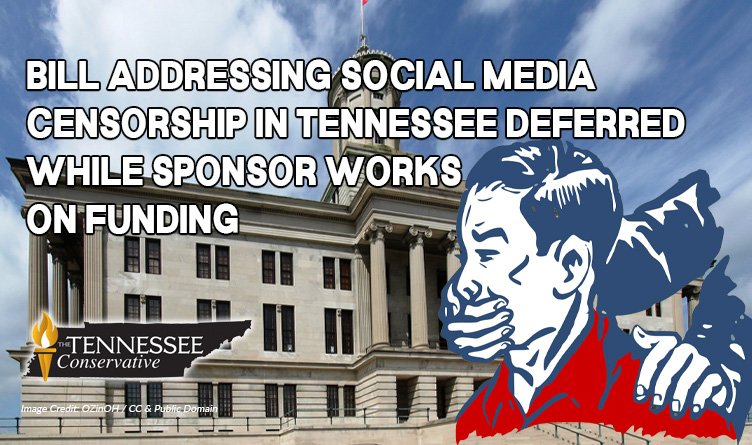US Visa Policy Update: Addressing Concerns About Social Media Censorship

Table of Contents
What Information are US Visa Officials Seeking on Social Media?
The US government increasingly requests access to social media handles from visa applicants. While not entirely new, increased awareness has amplified concerns. This isn't about monitoring your personal opinions; the primary purpose is to verify identity and assess potential security risks.
- Purpose of social media checks: To corroborate information provided in the application and identify any potential security threats or inconsistencies.
- Types of social media platforms commonly reviewed: Facebook, Twitter, Instagram, LinkedIn, and other popular platforms are frequently reviewed. The specific platforms checked may vary depending on the applicant and the type of visa.
- Timeframe for review: There's no set timeframe. The review process can take varying amounts of time depending on individual circumstances and the volume of applications being processed.
It's crucial to understand that not all applicants will have their social media reviewed. The social media check is only one factor considered in the overall visa application process, alongside other criteria such as financial stability, ties to one's home country, and the purpose of the visit. For official information, consult the website of the U.S. Department of State's Bureau of Consular Affairs.
Addressing Concerns about Censorship and Free Speech
Legitimate concerns exist regarding freedom of expression and potential bias in reviewing social media content. Applicants worry about the criteria used and the potential for misinterpretation.
- Focus of the review: The review focuses on identifying potential security threats, not on evaluating political or religious viewpoints. However, content that could be interpreted as promoting violence or illegal activity will be flagged.
- Lack of transparency: The exact criteria used in the review process aren't publicly available, leading to a lack of transparency. This lack of clarity understandably fuels anxiety among applicants.
- Advocacy and legal efforts: Several advocacy groups and legal professionals are working to increase transparency and accountability in the visa application process, pushing for clearer guidelines and more defined criteria.
While statistics on visa approval rates aren't directly tied to social media review alone, overall approval rates are available through official government channels. Applicants who believe their rights have been violated may have legal recourse, though navigating this can be complex and require legal counsel.
Protecting Your Privacy During the US Visa Application Process
You can take proactive steps to mitigate privacy risks during the application process.
- Review your social media privacy settings: Before applying, thoroughly review and adjust your privacy settings on all relevant platforms. Limit the visibility of your posts and restrict access to your profile.
- Be mindful of the content you share: Be cautious about the content you post online. Avoid anything that could be misinterpreted as promoting violence, illegal activities, or posing a security risk.
- Consult with an immigration lawyer: If you have concerns about your social media presence and its potential impact on your application, consult with an experienced immigration lawyer.
- Understand your data privacy rights: Familiarize yourself with your rights regarding data privacy and the potential challenges you might face.
Utilize resources like the Federal Trade Commission (FTC) website for information on online security and data privacy best practices.
Understanding the Legal Ramifications of Social Media Content in Visa Applications
Even seemingly innocuous posts could be misinterpreted and negatively impact your visa application. Consistency is key.
- Content raising red flags: Violent imagery, hate speech, expressions of intent to remain in the US illegally, and associations with known criminal organizations are examples of content that could raise concerns.
- Consistency is crucial: Ensure consistency between the information you provide in your application and what appears on your social media profiles. Discrepancies can lead to delays or rejection.
- Consequences of false information: Providing false information in your application, including intentionally misleading information on social media, can have severe consequences, potentially leading to a ban from future applications.
Analyzing case studies (without disclosing personal information) reveals the importance of carefully curating your online presence. While specific examples are hard to share due to privacy concerns, the key takeaway is to approach your online activity with caution.
Conclusion
The updated US Visa Policy Social Media raises crucial questions about privacy, censorship, and due process. While social media review is a part of the security vetting process, applicants can proactively manage their online presence to minimize potential risks. Understanding the process and taking steps to protect your privacy will increase your chances of a successful application. Carefully review your social media activity and, if needed, consult with an immigration lawyer to navigate the complexities of the US Visa Policy Social Media landscape. Stay informed on updates to US visa policy and related regulations concerning social media usage.

Featured Posts
-
 Savvato 5 4 Ti Na Deite Stin Tileorasi
May 30, 2025
Savvato 5 4 Ti Na Deite Stin Tileorasi
May 30, 2025 -
 Odigos Tileorasis Kyriaki 4 5 Maioy
May 30, 2025
Odigos Tileorasis Kyriaki 4 5 Maioy
May 30, 2025 -
 Crispr Gene Editing Enhanced Accuracy And Efficacy Through Novel Modification
May 30, 2025
Crispr Gene Editing Enhanced Accuracy And Efficacy Through Novel Modification
May 30, 2025 -
 Anderlecht En De Realiteit Van Een Aantrekkelijk Transferbod
May 30, 2025
Anderlecht En De Realiteit Van Een Aantrekkelijk Transferbod
May 30, 2025 -
 Andre Agassis Pro Pickleball Debut Tournament Details Revealed
May 30, 2025
Andre Agassis Pro Pickleball Debut Tournament Details Revealed
May 30, 2025
